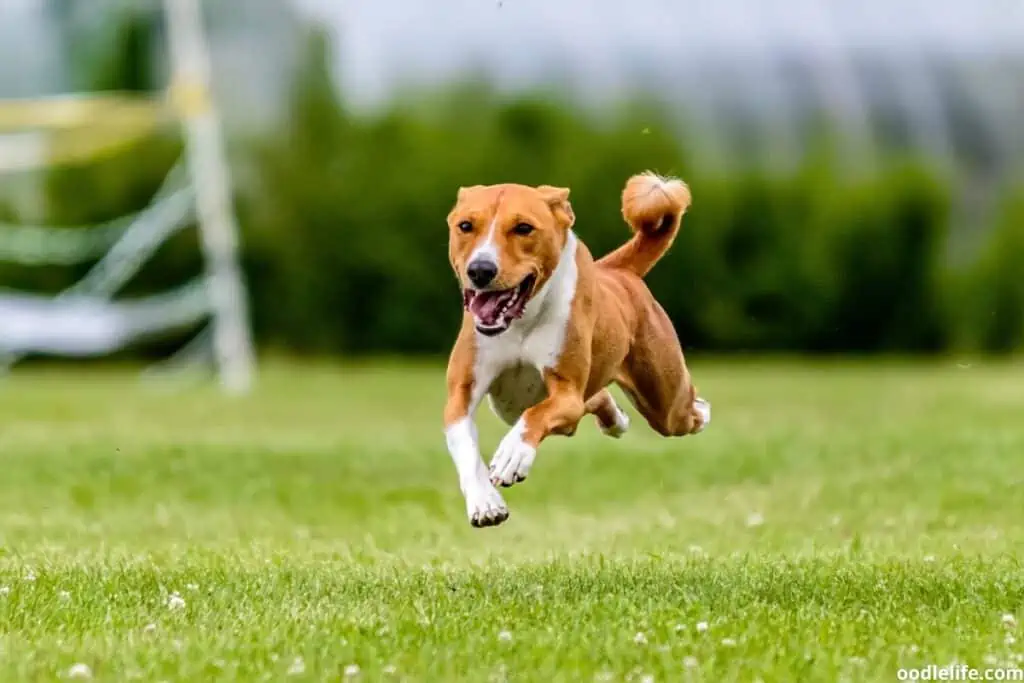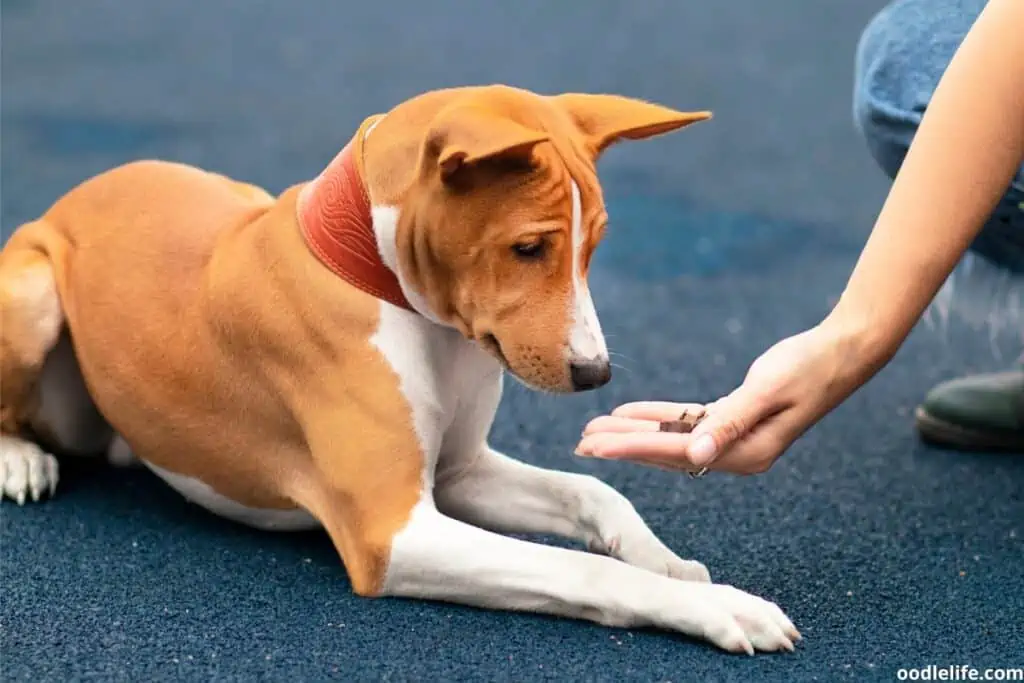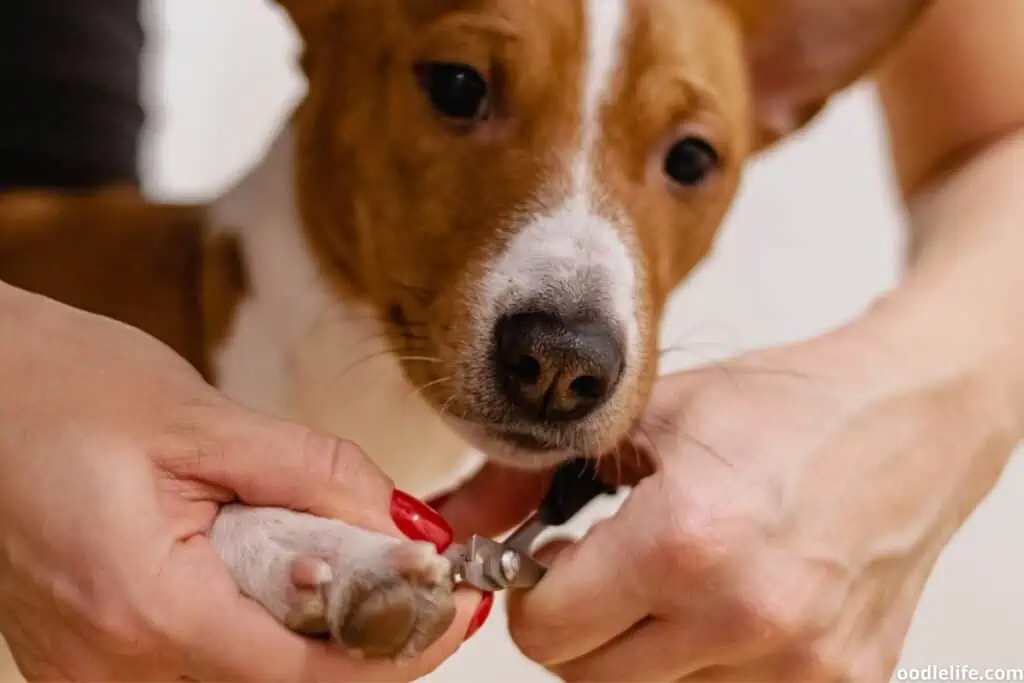How Long Do Basenjis Live? (Basenji Lifespan Guide)
How long do Basenjis live? Pets are considered to be a part of the family so much so that we want to have them forever. Unfortunately, most pets including Basenjis have shorter life spans than we do.
Most of us have experienced the pain associated with losing a family pet either as kids or adults. In light of that, you may want to plan ahead and get a Basenji that will grow as your children grow. You may have other reasons other than this but it’s a great comfort to know just how long you can expect to have your Basenji around.
Basenjis generally tend to live for twelve to sixteen years barring any unforeseen circumstances. Factors like their diet, exercise as well as health issues all play a part in ensuring that your Basenji enjoys a long and fulfilling life.

What is My Basenji’s Life Expectancy?
Let’s look at the general life expectancy of a Basenji. Life expectancy among Basenjis has generally been on the rise in recent years due to a number of factors namely better diet, health care and an overall better understanding of the breed among breeders and owners.
The average life expectancy has been on the rise from around 8 to 12 years old to an average of 12 to 16 years of age. A significant number of Basenji owners have recorded their Bs growing to about 18 years old.
The oldest Basenji in the world was from Sweden and was reported to be 24 years old. A couple of others have made it to 20 years of age. These are few and far between but generally show that a Basenji is capable of living a long and fruitful life.
It’s also noted almost universally that most Basenjis age quite gracefully and are very active well into their latter years. They usually show signs of old age only in the last 1 to 2 years of their lives.
In most cases, their health will deteriorate very quickly at this stage and some owners opt to have them put down because of the severity of old age-related ailments.

Oldest Basenji Ever
Although 16 years is the high end of the spectrum you would expect your Basenji to reach, there are many cases of Basenjis reaching 17, 18, 19 r even 20 years of age. The oldest account on the internet, although not validated by independent bodies is a 24-year-old Basenji from Sweden.
Follow the recommendations in this article and who knows, your Basenji might reach those lofty heights.
How Can My Basenji Live Longer?

Let’s look at how your Basenji can live long. If you are getting a Basenji as a puppy, you need to ensure that you find out about any hereditary concerns first to avoid the possibility of issues further down the road.
Once, you’ve established that there are a few other factors that you need to look into to give your Basenji the best possible chance of living a long and healthy life. Let’s get into these now, shall we?
Diet
It can’t be stressed enough but a good diet is the first step to ensuring the health of your Basenji. There are dog foods available on the market for your Basenji. Make sure that you keep meals as balanced as possible with a large proportion of raw food.
You also want to make sure that your B does not overeat. The Basenji’s frame is not built to carry around a lot of weight and joint problems can result. It’s especially important for puppies as their bones will still be in a state of development and not strong enough.
A diet with a strong leaning to raw foods is best when it comes to the overall health of your Basenji. Processed foods should be kept to a minimal.

Exercise
Basenjis are super active dogs with almost boundless amounts of energy. It is very important that they get at least 40 good minutes f exercise per day. Even though they are great apartment dogs, the best place for them is yards with space for them to run around freely.
They are also very fast and agile so you need to have a high fence to keep them contained.
Basenjis have received a reputation of being aggressive but sometimes it’s because they don’t have an outlet for all that energy.
Sign them up for programs that keep them active and they will live much longer than if they were to be confined to closed spaces.

Basenji Ailments
Just like all dogs, Basenjis are prone to suffer from different types of ailments but there are breed-specific ailments that are common for the Basenji. Two of these ailments include canine hip dysplasia and Fanconi syndrome.
Canine hip dysplasia is a condition which affects the hip joints of your Basenji and can cause them great pain. If you are considering having your Basenji as a running partner, you need to have them checked for this.
If you see your Basenji walking gingerly or not their usual active self, have them looked at by a professional vet or experienced dog breeder.
Fanconi syndrome is an ailment which can affect any dog breed but is more common among Basenjis. In fact, Basenjis account for 75% of all cases in North America and around 30% of Basenjis are affected by it.
Fanconi is a hereditary disease which has a number of associated abnormalities but mainly linked to the kidneys. Fanconi will greatly reduce your Basenji’s lifespan if not caught and treated early. If caught early, your Basenji will be put on a protocol and has the chance to live a long and happy life.
If you see irregular urinary behaviour in your Basenji, get them to go to the Vet as quickly as possible so that they can be screened for Fanconi. The earlier you catch it the better.
Since it is a hereditary illness, it’s important that you get your Basenjis from reputable breeders. Breeders with experience keep records of their sires and dames to make sure that they do not breed pups with Fanconi.
Avoid buying from pet shops and other backyard breeders because you won’t know the Basenji’s history.
Conclusion
So, how old do Basenji’s life? You can expect a healthy Basenji to live anywhere from 12 to 20 years if you take care to buy or adopt a healthy Basenji from a reputable breeder. Following a healthy, balanced diet along with a good exercise regimen are other ways of ensuring that your Basenji enjoys a long life.
Add to this the great strides being made in the veterinary field and we may see the record of 24 years being toppled in the future.